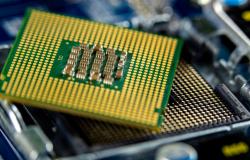
Is making semiconductors in Europe a good idea? With the introduction of the European Chips Act in early 2022, this is no longer an academic question. In this article we evaluate these plans in light of a wider—but remarkably one-sided—debate on industrial policy in advanced capitalist economies. Instead of focusing on policymakers, as most students of industrial policy have done, we draw attention to two first-order conditions that determine the chances of policy success: the existence of (proto-)competitive incumbents, and the alignment of the policy objectives with the prevailing institutional framework. We rely on that framework to evaluate the successes and failures in European aerospace, German biotech, and French computers, before using these insights to evaluate the European Chips Act. Investing in manufacturing of mature chips is, in that light, not a good idea. We suggest, instead, that the EU should concentrate on market segments that leverage its high-skill workplaces and world-class research system, and in which Europe has either already developed a comparative advantage or will not find itself at an initial disadvantage.
Photo by Sergei Starostin